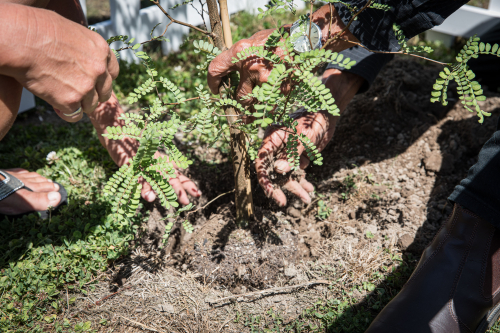

Current filter:

Good news and bad news.
When I last wrote, our projected rates increase was at just over 24%. The good news is that your Council team has dug deep and found some externally sourced funds that reduce that number down to just over 20%. And that’s the bad news too – it’s still a high number.
But you’ve probably read some of national the news reports over the last few weeks. Councils across the country are struggling to cap rate rises as they carry a massive debt and interest burden to fund essential infrastructure after years of artificially low rates. LGNZ has collected information from across the country that shows that at least half of the councils across the country are over 16% for the first year of their Long Term Plan out for consultation over the next few weeks.
We are on the higher side of that, but we are at the point that any further significant reductions in rates would see significant reductions in the levels of service that you experience. While we all expect value for our rates, it would not be realistic to remove, for instance, the whole parks, lawns and gardens activity – it is less than 3% of rates collected each year, but 100% of our pride and respect to the place we live in so we are not considering it! We are tightening everything where we can and you will see changes to things like transfer stations and libraries in the mix of our proposed changes.
So, in my view, given the extreme pressure on local communities - the local government funding model is broken. We do not have access to appropriate sources of income, outside of rates, to keep our core infrastructure looked after to the level that we and our grandchildren will need. Local government (City, District and Regional Councils) is an incredibly strong sector built on local democracy for local outcomes and local place-making. We can’t do without it. It holds together - just - while interest rates and construction costs remain steady. But in an economic crisis in which construction, roads and water supply costs have risen 27% over the last three years, and debt servicing and insurance rates have shot upwards - well, it’s not hard to see why we come to a “broken” conclusion when it comes to funding!
The Three-Year plan that we have been building is focused on cyclone recovery priorities – roading, drainage, storm-water and community resilience. It is trading off between pipes and pumps, or drains and roads – between ‘must-haves’, not ‘nice-to-haves’. In fact, just about all ‘nice-to-haves’ have been pushed out so they won’t happen in the next three years. Earthquake strengthening of buildings, playground improvements, and new recycling centres are all out of the budget for the next three years.
However, to return to the good news, the external funding we’ve identified to reduce our rates increase is also allowing us to pick up a couple of important community projects without adding to rates. We need to complete recovery activities at Harker St and Madge Hunter Park in Waipawa and tie them into the mainstreet improvements. We’ve allowed for this. We need to get resilience plans and community emergency hubs in a better space to better support us in future emergencies – things like water treatment and community plans around our halls, which we have also decided to put a bit of external funding towards.
The funding that we've found is part of the reform package from the last government. It was called ‘Better Off Funding’ – intended to allow Councils to invest in activities other than three waters to set them up for a post-reform environment. A weird name, and a playing field which is moving slightly due to the new government, but brilliant timing for us! We need this funding to focus on reducing rates impact, maintain levels of service as best we can (like keeping our rural recycling trailers going which we can now do thanks to this fund!), and delivering tangible results for our recovery.
Following last week’s council meeting, all the details of this approach are on their way to you, during April, to discuss, digest and provide feedback on.
I’m not going to sugarcoat it; this process is going to be challenging for everyone. Council works very hard to serve our communities in the best way, but we know it’s still going to be hard. We are going to be out there having the listening conversations with you, our community, as we all work through what this budget means practically and for all of us. I’m very much looking forward to that, because that’s when we find the best in our community – when we’re having the tough (and creative) conversations, and finding solutions together.
19 March 2024
Disclaimers and Copyright
While every endeavour has been taken by the Central Hawke's Bay District Council to ensure that the information on this website is
accurate and up to date, Central Hawke's Bay District Council shall not be liable for any loss suffered through the use, directly or indirectly, of information on this website. Information contained has been assembled in good faith.
Some of the information available in this site is from the New Zealand Public domain and supplied by relevant
government agencies. Central Hawke's Bay District Council cannot accept any liability for its accuracy or content.
Portions of the information and material on this site, including data, pages, documents, online
graphics and images are protected by copyright, unless specifically notified to the contrary. Externally sourced
information or material is copyright to the respective provider.
© Central Hawke's Bay District Council - / +64 6 857 8060 / customerservice@chbdc.govt.nz